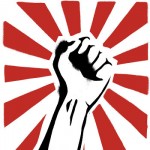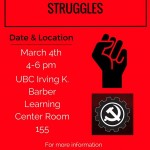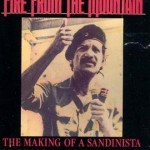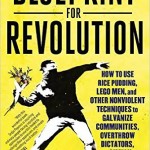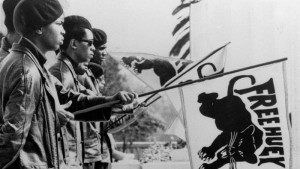This is the first version of the lesson plan that José and I have come up with for today (also a PDF document). A rather prettier and more up to date version can be seen as a Google Doc. All this is to accompany a set of Google slides that you can view.
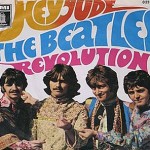
Revolution: A Concluding Lesson Plan
Jon: Play song (Beatles, “Revolution 1”). Start playing before class starts. Briefly discuss lyrics. Note that even in 1968, supposed year of revolutions, disillusion was already setting in. Aim: to start discussion and set the framework of returning to initial discussions from 12 weeks ago. 5-10 minutes max for questions:
Is it true that we all want to change the world?
Was/is revolution a matter of fashion?
Should revolution be fashionable?
Is the personal more important than the political?
Is it really going to be “all right”?
Jon and José: Go through agenda for the day. 3 minutes
Jon and José: Revolutionary themes. Go through the themes, pointing out how much we’ve covered over the past twelve weeks. And this isn’t even an exhaustive list of the themes we’ve touched on. Unfortunately, some of these have been raised but we didn’t necessarily follow through. Is that partially a result of the form or style of the class? Would it have been more “efficient” if it had been based on lectures? What would have been the upsides and downsides of that? But we hope the class, and these themes, will stay with you/us. In the meantime, we can’t do justice to everything but we’ve picked a couple of “big issues,” including returning to questions raised right at the start… Aim: to get people to think critically (but productively) about the course as a whole, both content and form. 5-10 minutes
What themes came up that we’ve missed?
What themes should have come up but didn’t?
Which themes should we have spent more time on?
Have certain themes or concepts changed over the class?
Should we have done more? How?
Should we have tried to do less?
Jon: What is Revolution? Go through slide show and quotations. Maybe talk briefly about some of the images. For final questions, split into pairs to answer them (one question per pair), then get back into group discussion. Aim: to revisit our initial questions, and consider how we might see them in a new light now. 15-20 minutes
José: What is a revolutionary text? Look at slides and set up the general question of how we establish what a revolutionary text is. Discuss the different types of texts that we have seen throughout the course. Ranging from Guerrilla Warfare to Country Under My Skin, and how each text provides its own perspective on the revolution. Aim: to set up a discussion on how our understanding of texts have changed over the course. 15-20 minutes
José: What is the role of a narrator? Look at slides and set up the general question on how a narrator affects our perspective of a revolution or text. For example does the starting text of Russell Brand be different if we read it at the end instead of the start? What our are perspectives on Che, Belli, Underdogs. Aim: to take a deeper look into how the role of a narrator affects our perspective on a revolution, its success or its meaning. 15-20 minutes
Jon and José: Do we still want a revolution? NB we may have to postpone this until Thursday. Perhaps just put these questions up (and give or send out a link to the presentation), and ask people to prepare their thoughts over the next couple of days. Set up an understanding that not all types of revolutions are the same or applicable to all situations. Aim: to think about the notion of a “practical” guide to revolution, and our own (non-academic) investment in the topic. Plus think about how we may have changed over the semester. 5-10 minutes if we’re lucky and don’t simply postpone until our next session.

